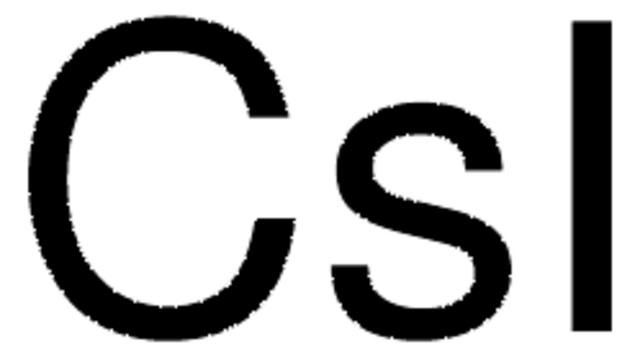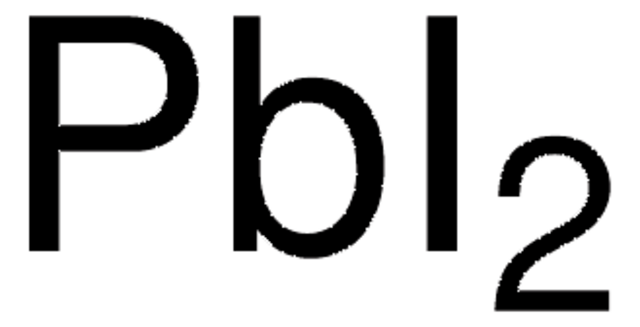915181
Cesium bromide
AnhydroBeads™, 99.999% trace metals basis, (Perovskite grade)
Synonym(s):
Cesium monobromide
About This Item
Recommended Products
product line
AnhydroBeads™
Quality Level
Assay
99.999% trace metals basis
form
solid
particle size
-10 mesh
mp
636 °C (lit.)
density
4.44 g/mL at 25 °C (lit.)
SMILES string
[Br-].[Cs+]
InChI
1S/BrH.Cs/h1H;/q;+1/p-1
InChI key
LYQFWZFBNBDLEO-UHFFFAOYSA-M
Looking for similar products? Visit Product Comparison Guide
Application
Packaging
Legal Information
Signal Word
Warning
Hazard Statements
Precautionary Statements
Hazard Classifications
Acute Tox. 4 Oral - Aquatic Acute 1 - Repr. 2
Storage Class Code
11 - Combustible Solids
WGK
WGK 3
Flash Point(F)
Not applicable
Flash Point(C)
Not applicable
Choose from one of the most recent versions:
Certificates of Analysis (COA)
Don't see the Right Version?
If you require a particular version, you can look up a specific certificate by the Lot or Batch number.
Already Own This Product?
Find documentation for the products that you have recently purchased in the Document Library.
Articles
To achieve net-zero emissions by 2050, renewable power contributions must triple. Photovoltaic stations provide vital utility power, achieved primarily through third- and fourth-generation technology. Promising trends include recycling and revolutionary, ultra-lightweight, flexible, and printable solar cells.
Our team of scientists has experience in all areas of research including Life Science, Material Science, Chemical Synthesis, Chromatography, Analytical and many others.
Contact Technical Service






